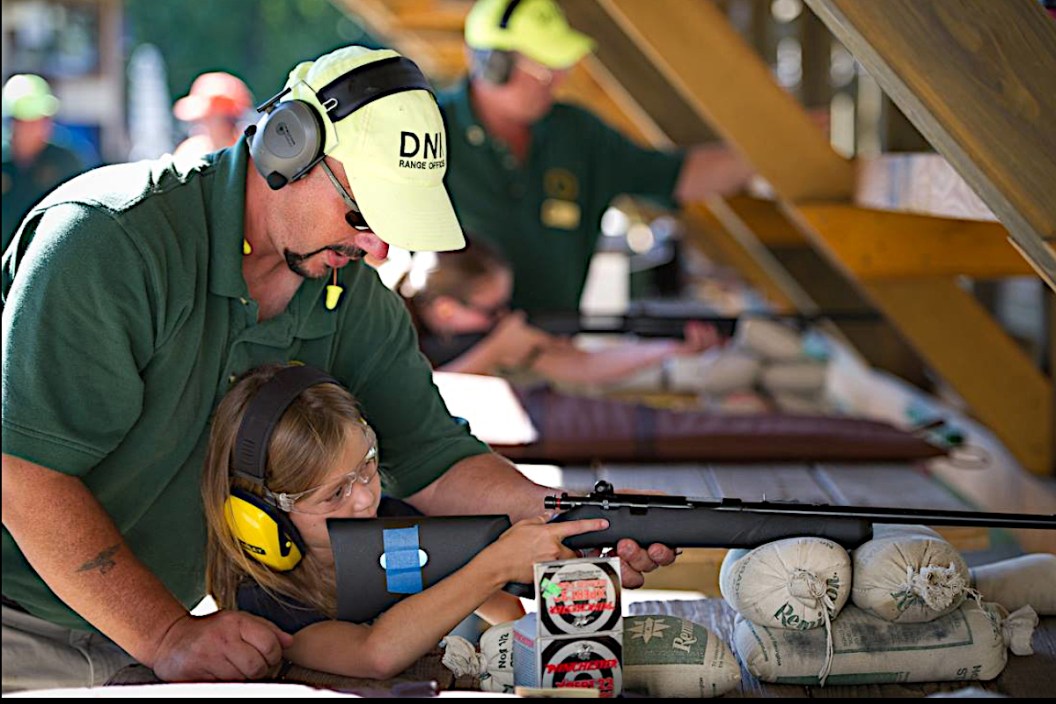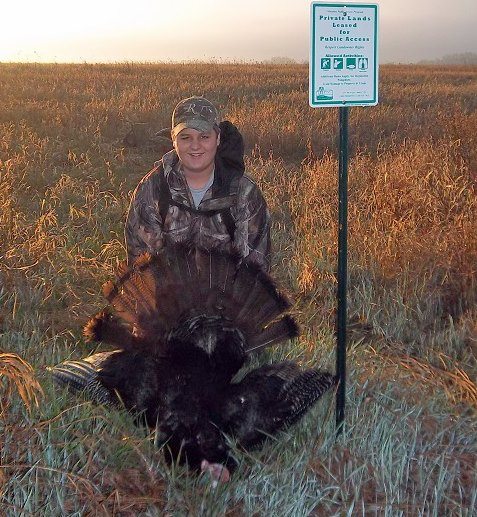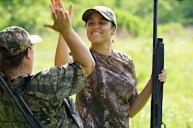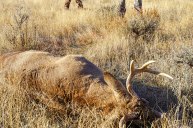Will hunting and fishing ever cease being American traditions?
As outdoorsmen and women, we'd like to think hunting and fishing are deeply enshrined traditions that will live forever. But will they always be that way?
Before we begin, let me first say I don't play political blame games. America is deeply divided politically right now, but that is a lazy cop out to blame one side. I'm not really a fan of any political party or candidates right now. There are members of both major parties who hunt and fish and others who don't. Let's not over-generalize and point fingers for who is to blame for some of the things I'm going to put forward. It solves nothing; it only serves to further divide.
Let's simply look at some factors that should be concerning for everyone who enjoys the outdoors.
Hunter numbers are in sharp decline.
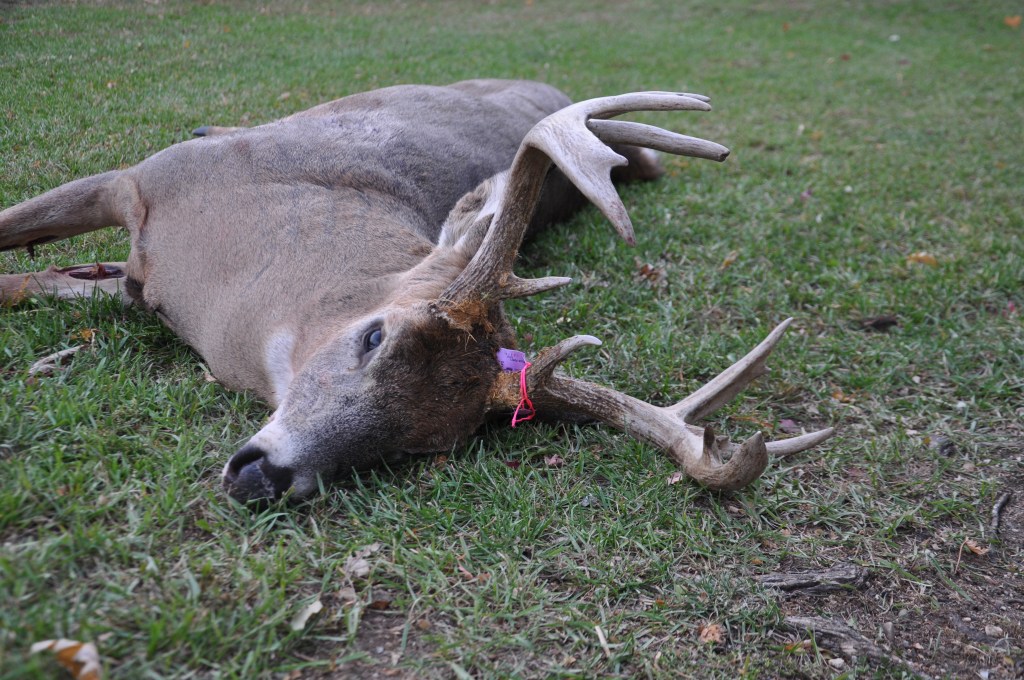
Travis Smola
This is simply a cold, hard fact all over the country, and you'd have to be living under a rock to not know it. Let's just look at my home State of Michigan, for example. In 2015, the Michigan DNR estimated 607,113 hunters went afield in pursuit of whitetail deer.
Now, that's a pretty impressive number. That's bigger than the entire population of a State or two. But if you go back just 15 years to the year 2000, the numbers are kind of jarring. In 2000, the DNR estimated 758,291 hunters went after deer. It took just 15 years for the State to lose over 150,000 hunters.
I've heard every explanation out there for these sharp declines:
"Those lousy young people are more interested in video games and TV."
"The DNR screwed everything up."
"There's no more deer, so it's not even worth going out anymore."
Personally, I think quite a bit of it just has to do with older hunters hanging up their coats and guns. My dad just decided out of the blue a few days before the season about six years ago: "I'm done." He sold his shotgun and hasn't gone out hunting again since.
It's probably a combination of these and many others. Whatever the reasons, this is happening. And if it continues, it's not good for hunting. Granted, in 2020 we saw hunting and other outdoor activities get a huge boost as a result of the Covid-19 pandemic, but how long can the surge in interest last? We are not sure. We hope most of those people are in for the long haul, but nothing is guaranteed.
Attitudes towards hunting and fishing are changing.
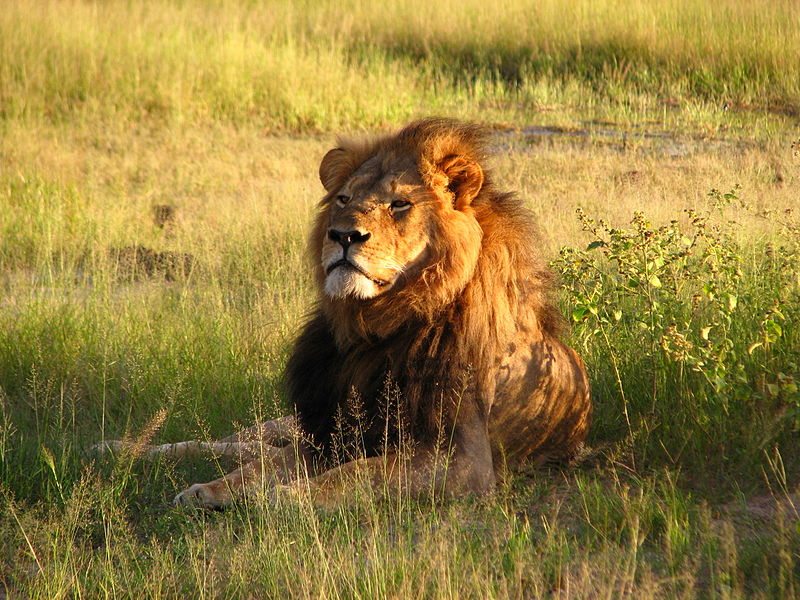
Wikimedia Commons: Daughter#3
Bob Dylan knew it before anyone: "The times, they are a-changing." That's especially true when it comes to hunting and fishing.
In my opinion, the current negative attitudes towards hunting were really kicked off by the "Cecil the Lion" incident several years ago, which seemed to outrage the whole world. Since then, similar incidents have happened again and again to both hunters and fishermen.
I've personally written a lot of stories on these Internet shaming incidents here at Wide Open Spaces, and I'm convinced it's definitely a trend of changing attitudes about hunting and fishing.
BUT, before anyone starts on the political cliches, again, in the wake of Walter Palmer's shooting of Cecil, I wrote several stories about that incident. While doing research, I saw people on BOTH sides of the political spectrum attacking Palmer for shooting that lion. I also noted some of Palmer's attackers were themselves hunters and fishermen. It's not a liberal vs. conservative or hunter vs. non-hunter issue, it's a person-by-person issue. If you ask a crowd of hunters and non-hunters about Cecil, you'll likely find some are in favor of hunting lions and some are not.
What we can't deny is that there's a real shift in public opinions happening here when it comes to wildlife and hunting and fishing.
Wildlife management is changing.
When it comes to population control, hunting and fishing have traditionally been the preferred methods in use. But going back to what I said about shifting opinions, many places with an animal population problem are now using other methods rather than encouraging hunting.
Staten Island, New York once spent $2 million on a vasectomy program for bucks in its urban deer herd.
At first, I thought it was an isolated, weird solution. But then it happened again my home State of Michigan. Ann Arbor started sterilizing does as a non-lethal complement to sharpshooters taking out select deer. I wrote stories about both issues and while researching I was surprised to see both the non-lethal programs were carried out by the same wildlife control non-profit program, White Buffalo Inc.
White Buffalo does offer controlled hunts and sharpshooter programs, but looking at their website, it seems obvious that non-lethal options are becoming more popular. I wonder if a burgeoning industry doing these procedures as contract work for cities is waiting to explode at any moment.
Does this mean these kinds of programs could replace hunting as a wildlife management, too? Your guess is as good as mine, but you have to admit, the implications are troubling for hunters.
Fishing will (most likely) outlast hunting.
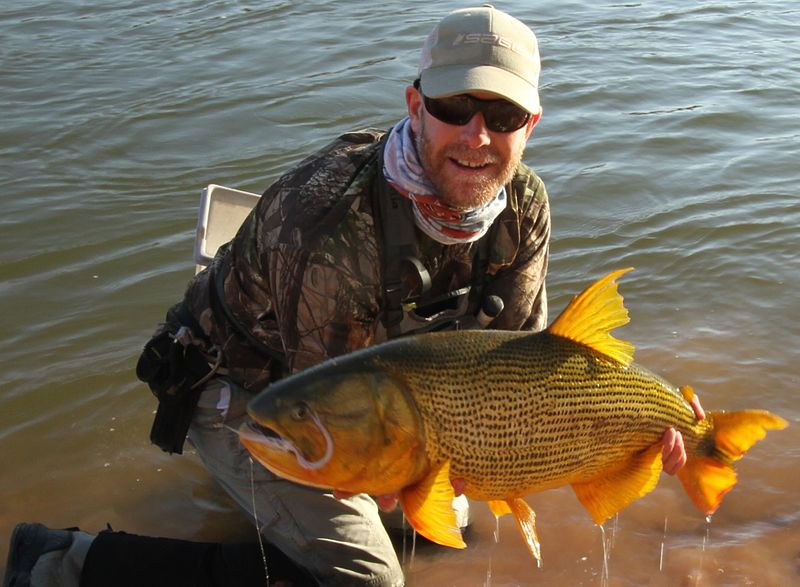
Wikimedia Commons: melaniae.trapani
If hunting and fishing ever cease being American traditions, I do think fishing will last longer than hunting, for a variety of reasons.
Fishing is just seen in a more positive light than hunting. And while I have started to notice some fisherman-shaming incidents, there hasn't been a Cecil the lion-level incident, yet.
I can't help but wonder if gun culture also plays a part. I know people who would never personally handle a firearm, but enjoy wetting a line a few times a year. Fishing is just less politically charged by default. Fishing can also be accessed and enjoyed by more people far more quickly.
Then there's the learning curve. And if you don't have someone to teach you the ropes, you're far less likely to pick up hunting. This problem worsens the more hunters hang up their guns. The good news for fishing is that almost anyone can go out, buy a pole, and start catching fish.
The other thing that will entrench fishing for a while is economic impact. In Minnesota, it's a $1.8 billion industry that supports over 55,000 jobs alone. I'm not saying hunting has no economic impact, but in the grand scheme of things, fishing is always going to be slightly larger in this regard.
That economic impact will certainly help keep fishing alive for a long, long time in the land of 10,000 lakes.
The End?
I know I'm not the only one to feel there's the possibility of a bleak future for hunting and angling.
There has been a major push by many lawmakers to make hunting and fishing constitutional rights recently. While this certainly all but ensures people will always be able to legally hunt and fish, I've always felt it was kind of short-sighted. I don't fear a new law taking away hunting and fishing.
That's because, in my opinion, if hunting and fishing ever cease being an American tradition, it will because people will simply stop participating.
For the record, I don't think I'll live to see it. Neither will you. Neither will the next generation, or the next few after that, even. But 200-300 years down the line, if current trends continue? I have to believe it's a possibility.
I'm not trying to be negative. I'm just being realistic about trends I've noticed while writing on a whole host of hunting and fishing topics for this website for the last two years.
What do we do?
Almost every hunting and fishing show host goes out of his or her way to introduce young people to the sports. Wildlife agencies across the country have introduced youth hunting seasons to try and bring in the next generations. Many of these same agencies have also introduced multiple free fishing days to try and garner up more interest in angling.
And that's really all we can do at this point. Interest in ALL types of outdoor recreation has been waning for years. And unless a major movement comes along to make hunting and fishing super-cool again, I'm not certain they'll survive in the long-haul.
Everyone should do their part to at least try to introduce others to the hunting and fishing sports, albeit in a respectful manner. Don't force someone to go fishing with you against their will if they really don't want to. That's not how you win over new outdoorsmen and women. You have to try and foster a love of the fishing and shooting sports, not force it.
Going back to Bob Dylan, I've already accepted that times are changing fast, and we, as hunters and fishermen, have to change and adjust with it if we want our favorite outdoor recreational activities to survive. Think about the image you are presenting of yourself as a hunter and fisherman to those who don't partake in our activities. Are you setting a good example for others?
And most importantly. Go out and take someone you love hunting or fishing.
Don't wait. Let's start right now, shall we?
Products featured on Wide Open Spaces are independently selected by our editors. However, when you buy something through our links, we may earn a commission.
For more outdoor content from Travis Smola, be sure to follow him on Twitter and check out his Geocaching and Outdoors with Travis YouTube channels.
NEXT: THE AXIS DEER AND HOW THEY'RE IMPACTING PARTS OF THE UNITED STATES
WATCH
